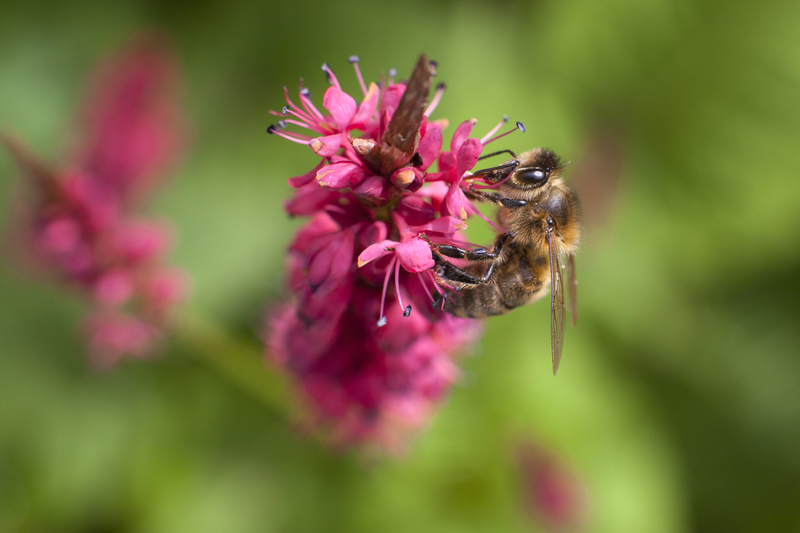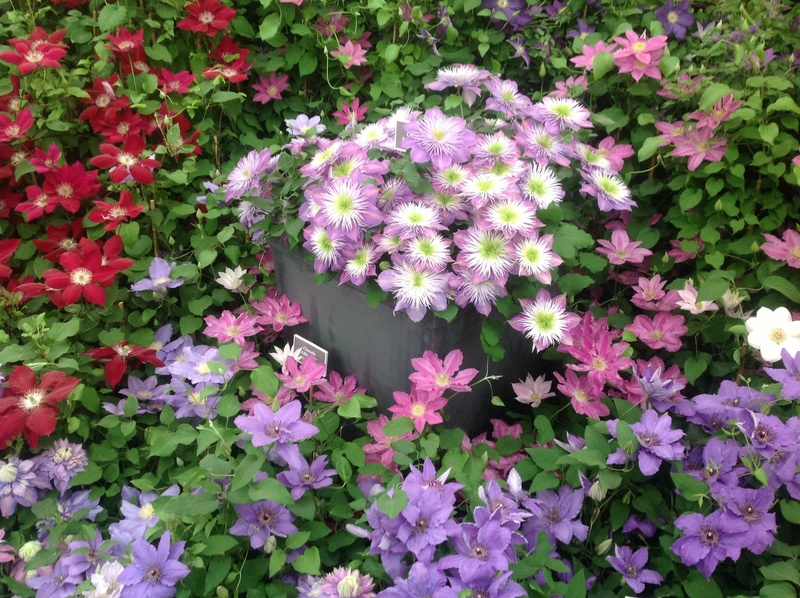The Art of Turning Waste into Soil That Thrives
Posted on 28/05/2025
The Art of Turning Waste into Soil That Thrives
Transforming your kitchen scraps and yard clippings into nutrient-rich earth is more than just a method of recycling--it's a practice that breathes life back into our environment and cultivates healthy, productive gardens. Join us as we explore the art of turning waste into thriving soil, unlocking the secrets of nature to sustain ourselves and our planet.

Why Composting is the Cornerstone of Thriving Soil
Composting, the ancient technique of converting organic waste into soil-enriching humus, lies at the heart of sustainable gardening and agriculture. By embracing this method, we not only reduce landfill waste but also empower our gardens to flourish. Here are some compelling reasons to start composting today:
- Reduces household waste: Composting kitchen and garden waste significantly cuts down on the amount of trash sent to landfills.
- Enriches soil: The end-product, called compost, is packed with nutrients essential for plant growth.
- Supports biodiversity: Healthy soil teems with beneficial microbes, fungi, and earthworms.
- Improves soil structure: Compost enhances soil's ability to retain moisture and resist erosion.
- Decreases reliance on chemical fertilizers: Organic matter provides slow-release nutrients, reducing the need for synthetic inputs.
Exploring the Many Forms of Waste for Soil Improvement
When we think of waste, we often envision kitchen scraps or grass clippings, but a wide variety of materials can be recycled into thriving soil. Understanding which items are ideal for composting and why will pare down your contribution to the landfill and boost your soil's health.
Green Waste: The Nitrogen Boosters
- Vegetable and fruit peels
- Coffee grounds and tea leaves
- Fresh grass cuttings
- Young plant trimmings
Brown Waste: The Carbon Providers
- Dry leaves
- Shredded newspaper
- Cardboard bits
- Wood chips and sawdust
Mixing greens and browns in the right proportions is key to optimal decomposition. Greens supply nitrogen, while browns provide carbon--together, they fuel the microbial processes that transform waste into thriving soil.
Mastering the Process: Turning Waste to Fertile Soil
Composting is both a science and an art form. By understanding the fundamentals, any gardener or eco-enthusiast can craft soil that is alive with nutrients and biology. Let's delve into the process that converts organic leftovers into black gold:
Setting Up Your Compost Pile
- Choose a Location: Select a shaded, well-drained spot in your yard for your compost pile or bin.
- Start with a Base: Lay down a layer of coarse material (like sticks or straw) to aid aeration.
- Alternate Layers: Add green (nitrogen-rich) and brown (carbon-rich) waste in alternating layers.
- Maintain Moisture: Your compost should be as damp as a squeezed sponge--add water as needed.
- Turn Regularly: Every few weeks, turn your pile with a fork to introduce oxygen and speed decomposition.
Tip: Chop or shred large pieces of waste to help them break down faster.
The Microbial Ballet: How Decomposition Happens
Underneath the surface, billions of microbes (bacteria and fungi) work tirelessly to break down waste. Their activity generates heat, speeding the conversion of waste into rich, crumbly soil. Earthworms and insects further aid in this transformation. The result is soil that thrives, teeming with life and nutrients.
How Long Does Composting Take?
The journey from waste to thriving soil can take anywhere from a few months to a year, depending on:
- The size and diversity of your compost materials
- How often you turn the pile
- Moisture and air availability
When your compost is ready, it will be dark brown, crumbly, and have an earthy smell.
Advanced Techniques for Supercharged Soil
Once you're comfortable with basic composting, it's time to explore advanced approaches that will further enrich your soil. Let's introduce a few cutting-edge techniques for transforming waste into the most fertile soil possible:
Vermicomposting: Harnessing the Power of Worms
Vermicomposting uses special red worms (Eisenia fetida) to accelerate the breakdown of organic waste. Worms digest kitchen scraps and excrete castings that are nutrient-packed and microbe-rich. Setting up a worm bin is easy even for apartment dwellers, and it produces some of the most potent natural fertilizer available.
- Perfect for fruit and vegetable scraps
- Odorless and compact
- Worm castings dramatically improve plant growth
Bokashi: Fermentation for Faster Results
The Bokashi technique, a form of anaerobic fermentation, is ideal for composting cooked foods, dairy, and meats--items not recommended for traditional piles. Using special microorganisms, Bokashi transforms kitchen waste into pre-compost that breaks down quickly in the soil, minimizing waste even further.
Hot Composting: Rapid Waste-to-Soil Conversion
For those seeking speedy results, hot composting is the way to go. By carefully balancing greens and browns and regularly turning the pile, you can reach temperatures up to 160?F (71?C), destroying most weeds and pathogens, and generating usable compost in as little as 2-3 months.
Common Challenges and How to Overcome Them
Troubleshooting Your Compost
Every composter faces occasional hurdles. Here are quick solutions to the most common composting issues:
- Bad odors: Indicate excess moisture or too many greens. Stir the pile, add browns, and improve aeration.
- Pile not heating up: May need more nitrogen. Add greens and turn the pile to supply oxygen.
- Pests: Avoid adding meat, dairy, or oily foods. Use a covered bin to deter rodents.
What Not to Compost
- Meat and dairy products
- Synthetic chemicals or plastic
- Sick or diseased plants
- Glossy or coated paper
- Weeds that have gone to seed
Excluding these items keeps your compost--and ultimately your soil--healthy and productive!
From Waste to Garden Gold: How Compost Enriches Soil
The benefits of turning waste into thriving, fertile soil can be seen not just in the health of your plants but across the entire natural ecosystem. Here's what happens when you apply compost to your garden:
- Soil structure improves--compost acts like a sponge, holding moisture where plants need it most.
- Nutrient content rises--slow-release nitrogen, phosphorus, and potassium become available over time.
- Microbial diversity surges--helpful organisms outcompete disease-causing microbes and pests.
- Plants become more resilient--compost-grown plants withstand drought, disease, and pests better than those grown in poor soil.
Apply a layer of compost each spring and fall, or mix compost into planting holes and seed rows for lusher growth and bigger harvests. Even houseplants thrive with the addition of homemade compost to their potting mix!

Regenerating the Planet--One Compost Pile at a Time
In a world challenged by waste disposal and declining soil fertility, the simple act of turning kitchen scraps and yard trimmings into living soil can have an outsized impact. Composting not only creates thriving soil but builds a community of stewards who care for the health of all living things.
How to Get Started Today
- Set aside a small bin or designated spot for collecting food scraps in your kitchen.
- Find or construct a compost bin for your outdoor space--or try vermicomposting indoors!
- Learn your greens from your browns, and strive for a balanced mixture.
- Turn and monitor your pile, watching as waste transforms into thriving soil.
- Celebrate your first batch of finished compost by feeding your garden's soil, and watch it flourish.
Final Thoughts: Embracing the Cycle of Renewal
The art of turning waste into soil that thrives is a practice rooted in patience, observation, and deep respect for nature's cycles. Every banana peel, leaf, and coffee ground that you compost is a step towards healthier soil, more abundant gardens, and a cleaner planet. Whether you're an urban gardener or manage a rural homestead, composting can fit into your daily routine and transform your environmental footprint.
The next time you clear your dinner plate or rake your lawn, remember: Each bit of waste is a seed for tomorrow's soil--and a thriving garden begins with what you compost today.
Latest Posts
Shielding Your Garden from Excessive Wind Blasts
Harnessing Heights for Horticulture: Vertical Gardens
Container gardening: Growing bounties in limited spaces
Blissful Backyards: Unlock the Secrets to Stunning Garden Seating Areas

